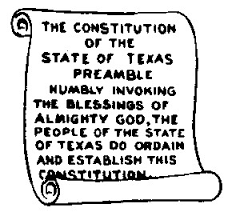There’s a bunch of them, but not many I’d recommend.
On Nov. 4, Texas voters will get the final say on 17 constitutional amendments — usually listed as statewide propositions at the top of the ballot — including billions of dollars in property tax cuts for homeowners and businesses.
Earlier this year, a two-thirds majority of the state Legislature passed the joint resolutions calling for the constitutional amendment elections, along with the state’s budget for the next two years, which includes $51 billion for property tax cuts.
Texas lawmakers have used multibillion-dollar budget surpluses, the result of inflation and temporary federal stimulus dollars during the COVID-19 pandemic, to pay for tax cuts in recent years. Proponents of tax cuts and bans, including Gov. Greg Abbott, have said they will maintain Texas as a competitive, business-friendly state and contribute to economic growth.
But some lawmakers and budget analysts have raised concerns that passing more tax cuts, especially on school district taxes which the state helps pay for, could be unsustainable.
“We always have to kind of balance giving folks tax relief versus making sure that we still preserve revenue for those public services,” said Shannon Halbrook, a fiscal policy director for the left-leaning Every Texan.
With lots of tax cuts and tax bans, especially through these upcoming constitutional amendment elections, the state and local governments could face a hard time paying for public services such as education, health care, and infrastructure needs in the future, Halbrook said.
Officials with Texas cities and counties say they are already being forced to either cut spending or raise taxes and fees to make up for budgets stretched thin by economic uncertainty, inflation, strict state limits on property tax collections and uncertainty around future federal funds. That’s why some Texans, like voters in Austin, will also see local propositions asking them to approve increasing local property tax rates.
If the constitutional amendments are approved, a majority of state lawmakers and Texas voters would need to pass new constitutional amendments to undo measures. Constitutional amendments are the only ballot propositions Texans get to vote on at the state level and will appear on the top of voters’ ballots, above any local races or measures they may be deciding.
To weigh in on the constitutional amendments, Texas voters need to be registered to vote by Oct. 6. Early voting will run from Oct. 20-31, and election day is Nov. 4. The deadline for counties to receive applications to vote by mail is Oct. 24. For more information on voting requirements, read our guide to voting in Texas.
Here’s a brief breakdown of the constitutional amendments.
A majority of the proposed constitutional amendments are measures meant to lower taxes for various Texans, including:
- Homeowners.
- Businesses.
- Elderly and disabled homeowners.
- Spouses of veterans.
- Homeowners who had their home destroyed in a fire.
- Property owners with border security infrastructure.
- Those who sell animal feed.
Other proposed amendments would prevent the state from imposing additional taxes on:
- Personal or business capital gains.
- Securities transactions and those working in securities.
- Inheritances.
Other proposals would fund:
- Water infrastructure.
- The Texas State Technical College.
- Research on dementia treatment and prevention.
A few proposals would amend the constitution to:
- Limit when a person can be released on bail.
- Enshrine parental rights.
- Clarify citizenship requirements for Texas voters.
- Overhaul the State Commission on Judicial Conduct.
Read more below about what each proposition will look like on the ballot and what it would mean for Texans.
Read on for the details. Most times I’m generally neutral-to-favorable on the bulk of the proposals. This year, I range from “eh, maybe” to “no” to “oh, hell no”. None of these could be on your ballot without some Democratic support, and there are a number of Dem reps who have some explaining to do as far as I’m concerned. All of the items in the second group above and the first three of the last group are all strong “No”s, the rest I will need to figure out and see who endorses what. Go read about these propositions and be prepared to vote accordingly. Some of the last batch of props failed, so don’t take anything for granted. The Barbed Wire, which has a few brief takes on the proposals, has more.

